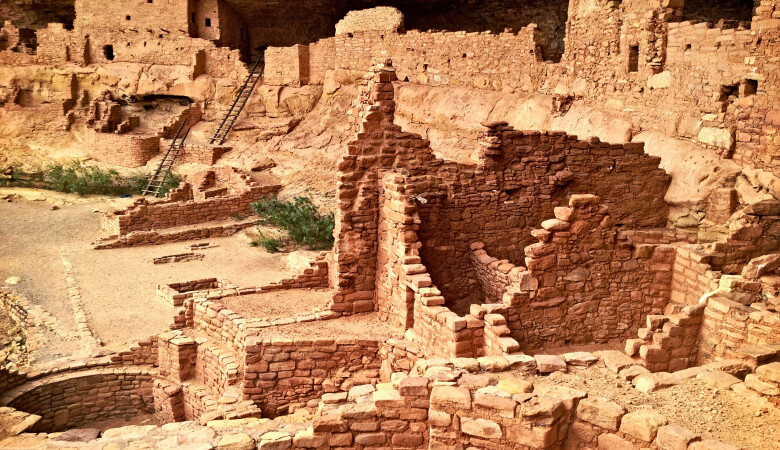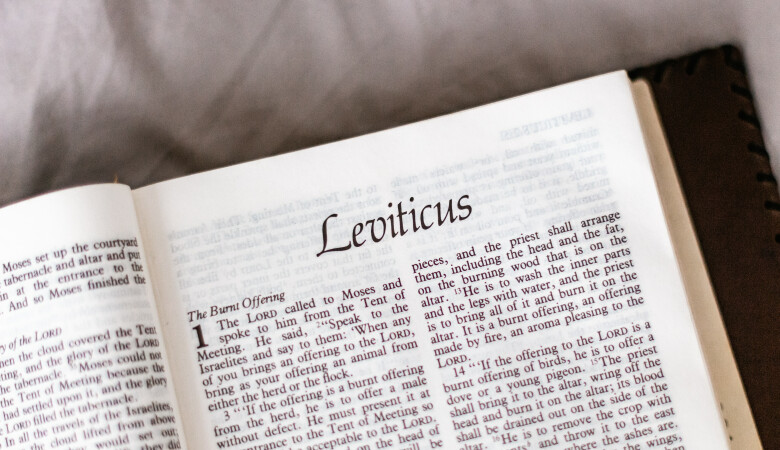The Office of High Priest Described and Fulfilled (Hebrews Sermon 19 of 74)
February 20, 2011 | Andy Davis
Hebrews 5:1-10
The Offices of Christ, Animal Sacrificial System
The Bridge and the Bridge-Builder
The most expensive road that I've ever traveled on was a bridge. We were missionaries in Japan, and my wife and I were going to a regional conference on the mainland, we were on the smaller island of Shikoku and so we drove down to Takamatsu in Japan, and began our journey across the longest bridge in Japan at that time, one of the 10 longest in the world, the Seto Ohashi Bridge. 8 miles long, took us almost 25 minutes to cross. And none of that amazed me anywhere as much as the money we had to pay to cross it. It was $100 to cross that bridge. I didn't think it was worth that. It was quite an experience, but not that much of an experience. And so, we paid this fee and we went across and it got me to thinking this morning as I mentioned last week, the Latin word for priest is bridge builder, pontifex. High Priest, Pontifex Maximus, the great high priest who's in front of us in this text is Jesus, the bridge builder between us and God, and we mentioned that last time. And as I was thinking about the cost of crossing that bridge, does it even compare to the cost of Jesus, the bridge to God? For you know that it was not with perishable things such as silver or gold that you were redeemed from the empty way of life handed down to you from your forefathers. But it was with the precious blood of Christ, a lamb without blemish or defect that we are made right in the sight of God, and were brought over, crossing over from death to life. From eternity in hell to an eternity in heaven. That is the most costly bridge in history, and the price was the blood of Jesus.
Now, as we come to Hebrews 5:1-10, we're looking at the ministry and the office of the High Priest as set up and ordained and established in the Old Covenant and the laws of Moses, but then fulfilled and surpassed by the ministry of Jesus Christ, our great high priest. The priestly ministry was established at Mount Sinai in the Old Covenant and the laws of Moses, by the direct revelation of God through Moses. He chose Aaron and his sons to this role, but they were merely types and shadows of the priestly ministry of Jesus Christ on which we depend. And so, we're looking this morning and what we have is a comparison between Aaron and Jesus and we're going to continue to learn more about that in chapter seven, but what's being presented for us is the supremacy, the superiority of the priestly ministry of Jesus over anything in the old covenant.
And remember the context, these Jewish professors of faith in Christ, they'd made an outward profession of faith in Christ in the Old Covenant style, they had been living their lives, the synagogue worship and all of that sort of thing, animal sacrifices, they had heard the gospel they had made an outward profession of faith in Jesus, they'd been baptized, I think, in water, they were members of a church, hearing apostolic style preaching week after week, but under pressure, under the attacks of the world, the flesh, and the devil they were under great pressure to turn back from the New Covenant, and go back to Old Covenant worship. And this epistle, this book of Hebrews is a serious, a dire warning of the danger of doing so, because in doing that you're not just turning back, turning your back on some legalistic regulations or some abstract covenant. They're turning their back on Jesus. And so the author has been giving us Jesus in every chapter. It's Jesus you're turning your back on. It's Jesus that you're turning away from. And here he does it again, it's Jesus, you're turning away from Jesus, the superior, the great high priest and you want to go back to Aaron who's inferior.
He has to be careful as he does it because he want to... He doesn't want to diminish the glory of the Old Covenant, fading though, it was, he doesn't want to say that it was nothing, that Aaron was established and set up in beautiful priestly robes to give him dignity and honor and glory, these were good things, but Christ has a greater honor and a greater glory and that old covenant glory is fading and it soon will be obsolete and it will be gone entirely. The time has passed for it. You can't go back. And so he wants to present the greatness of the high priest, but the limitations of the high priest, and then point through the limited greatness of the Old Covenant high priest, priestly ministry and his limitations as a sinner, and as a mortal, and he wants to go over to point to the greatness, the supremacy of Jesus as our final high priest.
For me personally, what I get out of this meditation is just an ongoing realization of my need for a high priest to minister for me. That I am still in this world, I'm still in the flesh, I'm still in danger, I'm still under the assault of the devil, I still have the pull of the flesh, it's still going on in my life and I need a priest to minister for me. And so do you. And we have such a high priest, and He is right now at the right hand of God and is interceding for each one of you and for me too. He's praying for us. And the author wants to give us a sense of the efficacy of that high priestly ministry so that our trust would be completely in Jesus and we would not go back to other things.
I. The Duties of the High Priest
And so, we have laid out for us initially here the duties of the high priest, look at verse one in Hebrews 5, "Every high priest is selected from among men and is appointed to represent them in matters related to God and to offer gifts and sacrifices for sins." And so what are the duties? First and foremost, the high priest, is to represent the people to God, in prayer. Though prayer is not mentioned concerning the Old Covenant priest, it is clearly mentioned concerning Jesus. In verse seven, how He offered up prayers and petitions with loud cries and tears. And so Jesus as a prayer warrior is presented and it's implied also that we're thinking of the high priest as a man of prayer. And so Aaron and Moses would frequently, as you know, stand in the gap between Israel and God and intercede for the people and pray that God would not destroy them, that His wrath would not be poured out on them. Moses in particular does this at the time of the golden calf.
Aaron, the high priest as he entered into the holy place, into the tent of meeting was to wear the names of the tribes of Israel on a golden plate over his heart as a continual memorial before the Lord. Exodus 28:29. And so he was also, I think, to bear on his lips, the names of the people of Israel, and to pray for them, and so he was to represent the people to God in prayer, and also to offer gifts and sacrifices for sins. This of course was the animal sacrificial system, and it was the priest's job to do the various actions of the animal sacrificial system as described clearly in Exodus and in the Book of Leviticus and other places. And by which blood atonement for sins could be made in symbolic form. This was the job of the high priest, the duties of the high priest.
II. The Qualifications of the High Priest
What were the qualifications of the high priest? Well, first he had to be human, selected from among men. Verse 1, "Every high priest, is selected from among men…" This we could take for granted, except that the author's already mentioned angels and so it can't be an angel who's going to be a priest ministering for us, has to be a human selected from among men.
Secondly, he has to be chosen by God, he cannot take the honor upon himself. Look at verse four, "No one takes this honor upon himself, he must be called by God just as Aaron was." So it's a divine calling to be a high priest.
Thirdly, he has to be able to deal gently with sinners. Verse 2, "He is able to deal gently with those who are ignorant and are going astray since he himself is subject to weakness." The word gently there means not easily angered. He's able to deal gently with sinners. He'd be out of a job if it weren't for sinners. There'd be no need for his ministry if it weren't for sinners. So he should be very glad and delighted to minister on their behalf. He should be dealing gently. Imagine a high priest saying, "I never thought I'd have to deal with sin." This is exactly why he's there, and so he's able to deal gently with sinners and not be easily angered. The people he represents are sinners. And their sinfulness is described, in particular, as linked to their ignorance and their wandering hearts. They're ignorant of God's ways. They have not known God's ways. They've not known His laws. And so they're wandering away. Even those things they do know, they willfully rebel against them and so they're ignorant and wandering into sin. Wandering through ignorance. If they really knew God, they wouldn't sin. And so all of our sins are in some sense sins of ignorance because we just really don't know Him, we don't know His glory, this is eternal life, that we may know you, the only true God and Jesus Christ whom you have sent, our sins are sins of ignorance. Not that we don't know the law of God, but we really just don't know Him.
And so, the priest I think, was to be a faithful expounder of the Law of God. In the Book of Malachi it says, "That faithful instruction is found on his lips." And so he teaches, he faithfully teaches the Word of God, but no matter how faithfully he is to teach the word the people are going to continue to wander, they're going to continue to go astray.
III. The Imperfection of the High Priests
Though the Jewish priests may have been tempted to be frustrated with the constant sinfulness of the people, they would have been restrained. Primarily because of the imperfection of the high priest, they themselves were sinners too. They were imperfect themselves. It says, "He is able to deal gently with those who are ignorant and are going astray, since he Himself is subject to weakness. This is why he has to offer sacrifices for his own sins, as well as for the sins of the people." He is subject to weakness. He himself is subject to weakness. You could go backward a little bit and say, "Well then, he's ignorant and going astray too." And he is. He is ignorant and going astray just like them, he's just like them. There's no real difference and uses the word weakness. He has a weakness to him. I think this implies a spiritual weakness, a moral weakness. He holds on to the things of God only weakly. His grip on the things of God, can be broken by temptation. He can be pulled away from the things of God. He's weak. Morally weak. And we see this again and again in the Scriptures.
Aaron is a prime example. Aaron was a weak man. When Moses was up there apparently too long in the mountain and the people were like, "We don't even know what happened to this man. It's time to get going, and move on." They're are people of action. They're tired of waiting for Moses. So they go to Aaron, and they want him to make them gods to go before them, and to lead them and Aaron caves into them. Though God has already spoken with his own mouth, the sound of the voice of God. The Ten Commandments have already been proclaimed, they've been preached by Almighty God. "You shall not make for yourself an idol…you shall not bow down to them or worship them." Yet what does he do? He gathers all of these gold brooches and jewelry and melts it, and he says to Moses, who is so angry... He says, "I threw it into the fire and out came this calf." Now, that's something I would like to have seen. "I threw it into the fire and out comes this calf, it's a miracle." No, he crafted and shaped it. He was an idol maker. He was an idolater.
And so we see the weakness of Aaron there just very clearly displayed. In the time of Malachi the priests were offering up blind and crippled and lame sacrifices thinking God wouldn't notice or care. What does it matter? It's just an animal, it's... And then God sends Malachi, the Prophet. "How dare you do this to me? Try offering those to your governor and see if he'd accept them. See if you can slip a blind animal past him, don't you know who I am, I am a great king and my name is to be feared among the nations. But you're trying to cheat me. Cursed is the cheat who tries to trick me by bringing blind or crippled animals." And the priests were sniffing at the burden of doing this ministry, they were, "What a burden it is to be a priest." They were weak and sinful men and so they have to offer sacrifices for their own sins to even be fit for the office.
The very first thing that had to happen with Aaron and his sons is that they had to be consecrated by the sacrifice of animals. Clear implication, "You are sinners, and apart from this sacrifice you're not fit for duty." And yet, for all of that, they offered up imperfect sacrifices to cover their imperfections. They offered up animals, but the blood of bulls and goats can never take away sins, the imperfection of the high priests and of their ministry. And so therefore the Law of Moses appointed imperfect men to an imperfect ministry and yet for all of that it was a helpful preparation for the coming ministry of Jesus.
IV. Jesus: The Perfect High Priest
And so we have depicted for us so beautifully, the perfection of Jesus as high priest. In verse 5 it says, "So Christ also did not take upon himself the glory of becoming a high priest. But God said to Him, 'You are my son, today I have begotten you' And He says in another place, 'You are a priest forever in the order of Melchizedek.' During the days of Jesus' life on Earth He offered up prayers and petitions with loud cries and tears to the one who could save Him from death and He was heard because of His reverent submission. Although He was a son He learned obedience from what He suffered and once made perfect became the source of eternal salvation for all who obey Him and was designated by God to be high priest in the order of Melchizedek."
Well, Jesus' high priestly ministry is developed only here in this one book. It's alluded to a little bit, I think, in the Book of Revelation, by the way he's dressed, but here, his high priestly ministry is just very potently unfolded for us. We can get a clear description of the high priestly ministry of Jesus. Other books focus on Jesus as King, as the coming Messiah, as God incarnate, in John's Gospel. But here in the Book of Hebrews, as our great high priest. And as we look more deeply into Jesus as the perfect high priest, we see the fulfillment of the symbolic priesthood set up by the Old Covenant. And also just how insane it would have been for these Jews, these first sensory Jewish Christians to turn back away from Jesus, and go back to Aaron and animal sacrifice. And that's what the author is trying to do, trying to show us that we must go on ahead and embrace Jesus' ministry because it's all there is. And all of those are just types and shadows of it anyway.
And now we have the reality in Christ. So we see the author and what he's trying to do here, he's trying to help us to see the greatness of Jesus, so that they will embrace His ministry and not fall away.
1) Perfect in His Person: The Son of God AND Son of Man
So first, we see Jesus as our great high priest, is perfect in His person. And we've seen this before but we can't say it enough. Our high priest, is both son of God and son of man. So the author begins with his statement in Psalm 2:7, "God said to him, "You are my son, today I've be gotten you." We've already seen this verse quoted in Hebrews 1:5, referred to again in the last chapter. This word today, I think when it says today I've begotten you, a deeply mysterious word, but whenever this is quoted it seems to be linked to Jesus' incarnation, specifically. So we see it in Hebrews 1:5-6, "For to which of the angels did God ever say, 'You are my son, today, I've begotten you.' Or again, 'I will be His Father and He'll be my son.' And again, when God brings His first born into the world, He says, 'Let all God's angels worship Him.'"
So it's speaking of His... The time of His birth. When Jesus took on a human body, when He became man for us. He was begotten Son of man. And we see it again alluded to when Jesus is raised from the dead at His resurrection. The same scripture, Psalm 2:7, the Apostle Paul preaching in the city in Antioch at the synagogue. He quotes the same thing, but this time connects it to the resurrection, not to the birth. "We tell you the good news." Paul says, "What God promised our fathers He has fulfilled for us their children by raising up Jesus," as it is written in the second Psalm, "You are my son, today I have begotten you." Oh the mysteries of the Word of God. But you see the common link. The common link is Jesus as human, Jesus in a body. Jesus of like family with us. And so when He's born and when He's raised again in a human body the Scripture is brought out. Jesus therefore, is our perfect high priest because of who He is, He is both son of God and He is Son of man. As the Son of God, as we've mentioned before, He has His Father's heart, He has His Father's ear. Anything that this perfect high priest could ever ask of His Father, the Father will most certainly grant Him and with great delight.
Father loves the Son and will give Him anything He asks. And what better high priest could you have than that? Son of the King, Son of Almighty God, interceding for you. Oh, you ought to meditate on that dear brother and sister in Christ. Picture it, that Jesus is speaking your name to Almighty God right now. Praying for you, interceding for you. Praying that your faith won't fail. And you know what? It won't. It won't fail until you don't need it anymore. Hallelujah. He's going to keep praying for you and keep praying for you. He's going to keep protecting you and marshalling your experiences and filtering your temptations and providing ways of escape and dealing with you if you should sin. You have an advocate with the Father, even if you should sin. He is going to minister and minister and minister at the right hand of God and He is speaking the whole time to His own Father. And how great is that?
2) Perfect in His Calling: Called by God
Secondly, Jesus is perfect in His calling. He was called by God to this ministry. The author makes it clear that Almighty God alone can appoint the high priest. The glory of being a high priest cannot be seized by force. It would be an invalid ministry, it would be artificial, it would be fake, it would be man-made, it would be idolatrous, as the northern kingdom of Israel sought to do in the days of Jeroboam and Rehoboam, when the kingdom was divided. And Jeroboam, son of Nebat, made Israel sin by setting up idols and forbidding his people from going to that one place that God had chosen for all those people to go worship because it was in the southern kingdom, in Judah. He didn't want them going there. So he set up his own priestly ministry and as someone later said, "Anybody can be a priest in your kingdom Jeroboam, he's got enough money and he's got a linen ephod, he can be a priest." Well, listen, you can't be that kind of a priest. No one can take this glory on themself and have a legitimate ministry. No, he must be called by God.
And so Aaron didn't one day come up to his brother Moses and say, "You know, I'd love to be a priest, of some sort, maybe even a high priest. We could have a special priest above all the other priests and if I could be him, I would love that." Neither did he say, "I'm not going to live forever, it'd be great if my sons could take over after me, be a hereditary kind of thing, where you could just pass it on from generation." He didn't take this honor upon himself. God told Moses in Exodus 28:1-2, "Have Aaron your brother brought to you from among the Israelites." Do you hear those words? "From among them I'm choosing out this man and his family, he is chosen by God from among all the Israelites along with his sons Nadab and Abihu, Eleazar and Ithamar, so that they may serve Me as priests. Make sacred garments for your brother Aaron to give him dignity and honor."
Well, Aaron didn't take that honor upon himself. He did it the right way. He was called by God and so he fulfilled that ministry. Jesus in the same way, just like Aaron, was called by God to be a high priest. "Christ also did not take upon Himself the glory of becoming a high priest, but God said to Him, 'You are my son today, I've begotten you,' And He says in another place, 'You are a priest forever in the order of Melchizedek.'" He was designated by God to be a high priest forever, He was called by God to this ministry.
3) Perfect in His Humility: Not Seizing What is Not His
Thirdly, we see Jesus perfect in His humility. He wouldn't think to do it. He didn't seize this honor, He didn't glorify Himself, it says in the NAS verse five. "Christ did not glorify Himself so as to become a high priest." This reminds me of the general perfect humility of Jesus in every respect. How He waits for things to be given to Him by His Father. Don't you see that again and again? He doesn't teach anything except what the Father gave Him. He doesn't do anything except the works the Father has laid out for Him to do. He only does what His Father wants Him to do and He does everything the Father wants Him to do.
Do you see His humility then celebrated so beautifully for us, in Philippians 2? Just as Jesus didn't take the glory of becoming a high priest, He doesn't take the glory of deity upon Himself either. Philippians 2 says, "Who being in very nature God, did not consider equality with God something to be grasped, but made Himself nothing. Taking the very nature of a servant being made in human likeness and being found in appearance as a man, He humbled Himself and became obedient to death, even death on a cross, therefore, God exalted Him to the highest place and gave Him the name that is above every name, that at the name of Jesus, every knee should bow in Heaven and on Earth and under the Earth, and every tongue confess that Jesus Christ is Lord, to the glory of God, the Father." The humility of Jesus flowing through that passage. It's why Paul quotes it there in Philippians 2. In the same way here he is humble and will not take anything except what the Father gives Him and that's His glory. And what a contrast to, for example, Nadab and Abihu who arrogantly went into the holy place and offered unauthorized sacrifice of incense to God, contrary to God's command. They were arrogant, and might have been drunk, it seems, because soon after that in Leviticus 10, God commanded that they not take strong drink before they approach Him.
And so they were arrogant, they were sinful, they were wicked and God struck them dead. Fire came out and consumed them. They were great sinners. But Jesus isn't like that. Jesus is humble when He approaches His Heavenly Father. He is humble and meek and lowly in the presence of Almighty God. Though He is the Son of God, yet He is humble in His presence. So He is our perfect high priest.
4) Perfect in His Priesthood: The Order of Melchizedek
Fourth, He's perfect in His priesthood in the order of Melchizedek. He says in another place, "You are a priest forever in the order of Melchizedek." The mysterious figure of Melchizedek is mentioned now for the first time. He pops up here. Suddenly appears just like he did in Genesis 14. Suddenly appears when Abraham was going back after his defeat of the kings and he just suddenly appears and Abraham gives him a tenth of everything. We'll talk about it more in depth in Chapter 7. This mysterious figure of Melchizedek. Then he pops up in the Psalter just in the middle of Psalm 110. Melchizedek, who's that?
Psalm 110:4, "The Lord is sworn and will not change His mind. You are a priest forever in the order of Melchizedek." Now this whole thing is going to be developed more fully in Hebrew 7, and we'll get to that. The foretaste is I want to give you right now is Melchizedek, the thing that's unique about him is that he is both priest and king. He's a royal priest. There's a combination of priest and king, that a priest sits on the throne, that's what we've got with Melchizedek. Now again, in His perfect humility Jesus would not presume to take upon Himself the role of the high priest. Why not? Well, because in the Old Covenant, He would have been forbidden to do so. Hebrews is going to make this very plain, Jesus descended from Judah. And He is fulfilling the Davidic Covenant in which a Son of David would never be lacking to sit on the throne. He is clearly the lion of the tribe of Judah, He is descended from Judah, but only Aaron's descendants could be high priest. He was from the tribe of Levi, and so there was a very strong wall of separation set up between the kingship and the priesthood.
And yet, some arrogant individuals from time to time would try to broach that barrier. Like for example, King Saul, you remember how he was waiting for Samuel, and he was going to... Samuel was going to offer sacrifice and all that sort of stuff and he's waiting and waiting. Sometimes God makes you wait just long enough to show how sinful you are. Hang in there dear friends, don't give in to temptation. Just wait another six minutes King Saul and Samuel will show up, but he didn't. And so he takes it upon himself to do this priestly ministry of offering sacrifice, and he is rejected by God on that basis. Or then again, King Uzziah you remember Uzziah, very successful king, in many respects a Godly king, blessed in every respect. At one point though he became arrogant, he became filled with himself, and he took upon Himself the glory of entering into the temple and burning incense to God. As though God would accept that.
And it says that Azariah, the priest and 80 other priests, courageous men, confronted this powerful king and they said to Uzziah, "It is not right for you, Uzziah, to burn incense to the Lord. That is for the priest, the descendants of Aaron, who have been consecrated to burn incense. Leave the sanctuary for you have been unfaithful; and you will not be honored by the Lord God." Well, when Uzziah heard this he was in rage and was about to throw the censer, the burning censer at Azariah and the priests, but at that moment, leprosy broke out on his forehead and Azariah pointed it out, all the priests saw it, they were stunned. And it says they hurried him out of the temple. Indeed he was eager to go. Oh my. Eager to go, lest he be killed. How many times does it say concerning the priests, so that they will not die? Do you see the grace of God to Uzziah there? The grace of God that God didn't strike him dead on the spot for his arrogance. But what I say to you is Jesus did not presume to be a priest king, a king priest, He didn't presume. There was a wall of separation. But, well, what are we going to do about that?
According to the Old Covenant, the two will be forever separated. Well, then the author to Hebrew gives the resolution: we need a new covenant. Amen. We've got to have a New Covenant and in that New Covenant, we can have a new order of priest and that new order is going to be the order of Melchizedek. And the Old Covenant, it will become obsolete, and aging, and will pass away. And that wall of separation will be broken down, and there will be a union. On the throne, there will be a priest, the priest will be a king and they will be united. Jesus did not arrogantly take this upon Himself, this was planned by God that He would be a high priest in the order of Melchizedek.
5) Perfect in His Eternity: A Priest Forever
Fifth, Jesus is perfect in His eternity. The single word forever gives us that. Do you see the word forever? Verse 6, "And He says in another place, You are a priest forever in the order of Melchizedek." All the descendants of Aaron, they're all mortal. They all died one after the other. In fact, the death of the high priest was built into the Old Covenant, it's built into the law. You remember that if you accidentally murdered somebody and an avenger of blood was coming after you could run for your life to a city of refuge, and there you would be safe and secure. But you had to stay there until the death of the high priest. So I mentioned in Bible for Life early today, woe unto you, if he's a young man. 37-year-old high priest, you're going to be there a while, get used to the city. Look around, you need to stay right there, because in that place alone, there is safety and security. Friends that's the picture of Jesus. Those cities of refuge, were a picture of Jesus and so also this whole rule that they had to stay there until the death of the high priest. How is that a picture of Jesus? Well, we have a permanent priest, He's never going to die, so we're never going to leave the city of refuge, we'll be there forever. It's called the New Jerusalem, it's called the home of the living God, and you'll be safe there forever.
These Aaronic high priests, they were mortal, they died one after the other, and each one of them died, because they were sinners, they were sinners in Adam, and they were sinners themselves. And the wages of sin is death. Jesus only died as a substitute for us who are sinners, so Jesus is forever our priest. And sometimes forever, can be just overwhelming and difficult. So let's just say Jesus will be your priest, high priest, later today. And He'll be your high priest tomorrow too. Let's just start there, okay? He's also going to be your high priest forever, but He's going to be your high priest for the rest of your life. He is your priest forever, and He will never leave you and he will never forsake you, and He will keep praying for you. And He will not lose you.
6) Perfect in His Intercession: Fervent Prayer to God, Heard by God
Sixth, He is perfect in His intercession, fervent prayer to God heard by God, look at verse 7, "During the days of Jesus' life on Earth, He offered prayers and petitions with loud cries and tears to the One who could save Him from death and He was heard because of His reverent submission." I've mentioned the two great ministries of the high priest are the offering of sacrifices, and making of intercession for sinners. Jesus is the perfect high priest when it comes to intercession. He is the best prayer warrior, in history. There's none better than Jesus. And this passage clearly refers to Jesus' prayers while on earth despite being beset by great weakness in His physical body, He was mighty in prayer. The author speaks, I think, of the days of Jesus' life on Earth because He uses the name Jesus. He's not ashamed to speak this name, Jesus. Not merely Christ, for Christ is a title like king, he's the Messiah. Christ Jesus, like King Jesus. But he speaks of Jesus, the human being Jesus of Nazareth, Jesus the son of Mary, Jesus the man, Jesus the one who died on the cross. During the days of Jesus' life. Friends, can we say the name Jesus more frequently? What do you say? Let's say the name Jesus a lot this week, let's celebrate the name Jesus, let's love the name Jesus, let's say that sadly offensive name to our lost friends and co-workers, and neighbors, let's say the name Jesus a lot. Let's be Jesus' people, Amen. Let's speak the name of Jesus.
The author celebrates that. And during the days of Jesus' life on Earth, He made prayers with intensity. Prayers and petitions it says, the repetition gives you a sense of not just prayers but petitions and not just petitions, but He also prayed. What's the difference? I don't know, but He did both. Just the repetition, gives you a sense of the comprehensiveness of His prayers. And He does so with loud cries and tears. There's a passion and intensity of His request, they're pouring forth these requests, are pouring forth from Him like molten lava out of his heart. How many human pastors and priests have defiled the act of prayer with the coldness and formality of their prayers? Prayers intoned, prayers droned, prayers that are as dead and lifeless as we fear their hearts may be. How many times have I been like that or you? Mailing it in, the time of prayer. Well, friends, I hope you're still praying through the phone book. I hope you're still praying for each other. We need to do it as much in February as we did in January, and maybe even more in March. So please keep praying for each other, and if you've dropped this practice, pick it back up again, look at the date and go to the page, pray for some people.
But the thing is, Jesus continues to pray, and He prays with passion. Thomas Brooks, a Puritan pastor put it this way, about praying with passion. He said,
"As a painted fire is no fire, a dead man is no man, so a cold prayer is no prayer. In a painted fire, there's no heat, in a dead man there is no life, so in a cold prayer, there is no power, no devotion, no blessing. Cold prayers are arrows without heads. They're like swords without edges, they're birds without wings, they pierce not, they cut not, they fly not up to Heaven. Cold prayers do always freeze before they get to Heaven. Oh, that Christians would chide themselves out of their cold prayers and chide themselves into a better and warmer frame of spirit when they make their supplications to the Lord."
Well, that's for us. Jesus doesn't need that admonishment. He pours out prayers and petitions with loud cries and tears.
And it says He did so to the one who could save Him from death. I think this is bringing us right to Gethsemane, that holy ground, where we have been before. Where Jesus falls down before His Father and is praying with intensity, "Father, if it is possible, let this cup be taken away from me, yet not what I will but what you will." And he's praying with such intensity that great drops of blood are flowing from His face. You see this intense man on the ground, this is the one who's praying for you. That's what the author is getting at here. And He was heard, that's the success of His prayer. God always hears Him. We want a high priest whom God will hear, a sinful priest cannot get God's ear. Isaiah 59 says, "Surely the arm of the Lord is not too short to save, nor His ear too dull to hear, but your iniquities have separated you from your God, your sins have hidden His face from you so that He will not hear." But that will never be the case of Jesus, He is perfect, pure, and holy, and God always hears His prayer and so it says He was heard because of His reverent submission.
7) Perfect in His Piety: Obedient, Reverent Submission
And so we see Jesus is perfect in His piety. He was heard because of His reverent submission. KJV says, "He was heard and that He feared." ESV, "He was heard because of His reverence." NAS gives us, "He was hard because of His piety." So I'm going to break all the rules and put them all together. He feared in reverence, in piety. I'm just going to intensify this. He is a godly man who's praying for you, and because of His fear, of the Lord, that is the beginning of wisdom, because of His godliness, He was heard by Almighty God. And He comes in perfect submission to His Father.
He says, "Father, if it's possible, let this cup be taken from me. You can save me from death." But it was not God's will to save Him from death. It was not God's will, because He wanted to save us from eternal death. He wanted to save each one of the sinners that are in here, if you will just call on His name and I'm pleading with you, if God has brought you here under the hearing of the Gospel then hear me now. This is the day of salvation. This is your savior, there is no other. Jesus was not saved from death, so He could save you from death. All you have to do is trust in Him. Call on His name, for the forgiveness of your sins.
And it says here that Jesus learned obedience from what He suffered. This is the mystery of the incarnation. How can you be omniscient and learn something? It's troubling to me. But Jesus, it says learnt. And I think here, He learned by experience, He learned by living as a human being, by suffering in the body, and especially He learned by going through the cross and having been made perfect, He is therefore our high priest. Well, what does this mean that He was made perfect? Well, it does not imply imperfection, you know what it implies? It implies a completion of God's sovereign plan. God laid out a plan and Jesus perfected the plan. He lived it out and did it. And so he says in John 17 in the high priestly prayer, "Father, I have brought you glory on Earth by perfecting the plan You gave Me to do." So, He finishes the plan and then right before He's dying, He's on the cross, the last words in John's Gospel, last words He says as He's dying on the cross, He says, "It is finished." The Greek word is related to the word for perfect. It is perfect is what we could say. "It is perfected. I have finished the work that God gave Me to do and it's finished." And so, He was qualified or made perfect by what He suffered and therefore you see He is perfect in His sacrifice.
8) Perfect in His Sacrifice: The Source of Eternal Salvation
Once made perfect, he became the source of eternal salvation for all those who obey Him. Jesus by dying on the cross, by shedding His blood becomes a fountain, a source of eternal salvation for us. Just meditate on those words; eternal salvation. Jesus is your eternal savior, He's bringing you into an eternity of salvation, He is your source. And so we have that river of the water of life flowing clear as crystal coming down from the throne of God in the center of the city. He is the living source of your salvation, the source of your eternal salvation is the blood of Jesus.
This then is the perfection of the priestly ministry of Jesus, the high priests who are descendants of Aaron were sinful men who had to offer imperfect sacrifices for their imperfect lives. And after endlessly offering those symbolic sacrifices, which could never take away sins, they died and they were replaced by their sons to carry on that ministry. But Jesus is the perfect high priest. He is the Son of God, and the Son of Man who is sinless, pure and undefiled. He was called by God to be a high priest and a king in the order of Melchizedek. Jesus humbly took that role from God. He displayed perfect prayers in Gethsemane and perfect submission to the will of God, and that perfectly qualified Him to be our High Priest and once made perfect through suffering, He is qualified to save you, sinner, though you may be.
V. Applications
So, what application? Just go back a little bit to the end of Chapter 4, let us hold firmly to the faith we profess. Amen. That's our application. Hold on to this great high priest as He holds on to you. Strengthen your faith grip on Him, immerse your mind in the things that I'm talking about here today, immerse your minds in scripture, if your grip on Jesus is weakening, strengthen it. Now you're not saved by your grip on Jesus, you know that, but it's still good to have a good grip on Jesus, amen. I press on to take hold of that for which Jesus has taken hold of me. So Jesus takes hold of me, and in taking hold of me, He's teaching me to grip on Him. And so, let us hold fast to our confession.
Secondly, let us draw near to the throne of God. As we said last week, come near. Jesus is already praying for you. He's been praying this whole time. He's praying that you'll hang in there with me another one or two minutes, we're almost done. But He's praying for you, that your faith will be strengthened and it will not fail and that you'll get the full ministry of the Word of God. He's interceding for you. When you come in to the throne of grace, it's a busy place. Jesus is already there at the right hand of God, praying for you. Join him in prayer.
And thirdly, He is the source of salvation for everyone, that's not what it says. He's not the source of salvation for every single solitary human being on the face of the Earth. No He's a source of salvation for those who obey Him. Let me put it to you this way, if Jesus is saving you, He's causing you to obey Him, and if you're not obeying Jesus He's not saving you. And so, obey Him by the power of the Spirit. And again, you're not saved by your obedience, you're saved, that you may obey. And your obedience is not the ground of your salvation, it's merely the proof of it, but you must obey Him, you must follow His laws, by the power of the Spirit. This is our fifth baptismal vow. We say it every single time. Do you promise to walk in the pattern of newness of life by the laws of God, and the laws of God, by the power of the Holy Spirit? Yes, I do, that's our baptismal promise. Close with me in prayer.
Father, thank you for sending us such a great high priest and Jesus, thank You for never forsaking us, never leaving us, thank you for interceding. Thank you, You bear our names on your heart and You carry them into the presence of God and You bear our names on Your shoulders and You carry the weight of us all the way into heaven. Thank you, Jesus, our great high priest. Pray for us, O Lord, continue to pray as I know You will, and teach us to pray as You are praying, that we would pray for each other horizontally, that we would join into the intercessory ministry of Jesus, praying for this brother or that sister that their faith won't fail and that they will obey Jesus and follow Him. By the power of the Spirit, we pray this in Jesus' name. Amen.






























